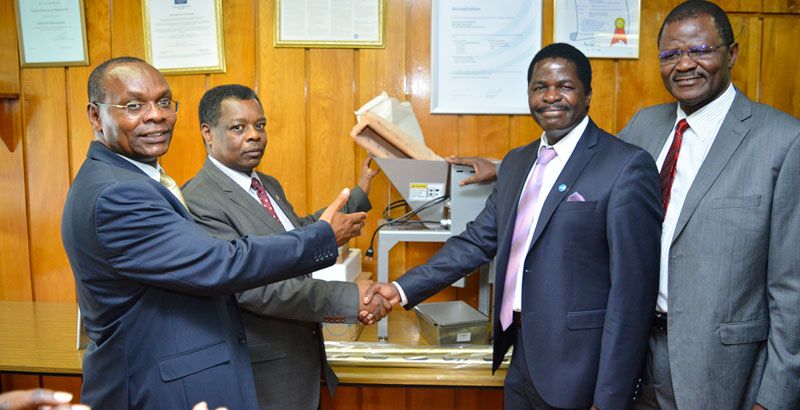
Countries within the Eastern and Southern Africa have agreed to develop common standards and policies aimed at eliminating the trade and consumption of chemical compounds found mostly in cereals but are proven to cause cancer.
Two leading regional research bodies; The African Agricultural Technology Foundation (AATF) in partnership with the International Institute of Tropical Agriculture (IITA) and United States Department of Agriculture-Agricultural Research Service (USDA-ARS) are working with COMESA member countries to develop regulatory measures to support the registration of bio-pesticides in the region that particularly target aflatoxins – the chemical compound that causes liver cancer.
Due to the high incidence of aflatoxins reported along the food chain of common staples particularly maize and ground nuts in the region, scientists have developed bio-control products known as aflasafe.
Dr. Richard Molo, an expert in biological control of pests in the National Agricultural Research Organization (NARO), describes bio-pesticides or Microbial Biopesticides as pest control methods that use living organisms to control insects or crop pests.
Aflatoxins invade crops during plant growth while in the field and during storage. Maize is one of the most susceptible cereal crops to pre-harvest aflatoxin contamination particularly during periods of moisture stress and when insect damage is prevalent.
A statement from AATF noted that the project seeks to create an enabling and responsive environment to increase delivery and farmer access to Aflasafe and other biopesticides for the effective control aflatoxin in crops.
The project is facilitating the development of a regional bio-pesticide regulatory framework for Africa with the preparation of a Guidance document titled. “A Guide to the Development of Regulatory Frameworks for Microbial Biopesticides in Sub-Saharan Africa”.
The Guidance Document is being employed in several countries to help regulatory bodies in those countries develop bio-pesticide registration frameworks that this consistent with their existing laws. Therefore, this process is underway in Zambia, Mozambique and Malawi.
In the quest to have the guidance document adopted and approved for use, AATF in collaboration with USDA-FAS embarked on consultations with policy officials and heads of government agencies responsible for formulating policies, regulations and enforcement of laws relating to the registration and use of microbial pesticides.
In an effort to promote harmonisation of regulations on bio-pesticides, AATF recently convened national stakeholders meetings to discuss and draw a roadmap for implementing/adopting the Guidance Document (RGD) for the Registration of bio-pesticide.
During the same ceremony, AATF procured sampling and testing equipment for aflatoxin control regulatory laboratories in Kenya and Uganda. The equipment shall be used for sampling and testing for aflatoxin in maize and peanuts. The equipment was handed over by COMESA and AATF to the government officials from Kenya and Uganda during the ceremony to sign a mutual recognition agreement on the use of a common aflatoxin sampling testing and protocol between the two countries.














Sunrise reporter
Leave a Comment
Your email address will not be published.